3. ARTIST BLOG – Our first days in Bulgaria
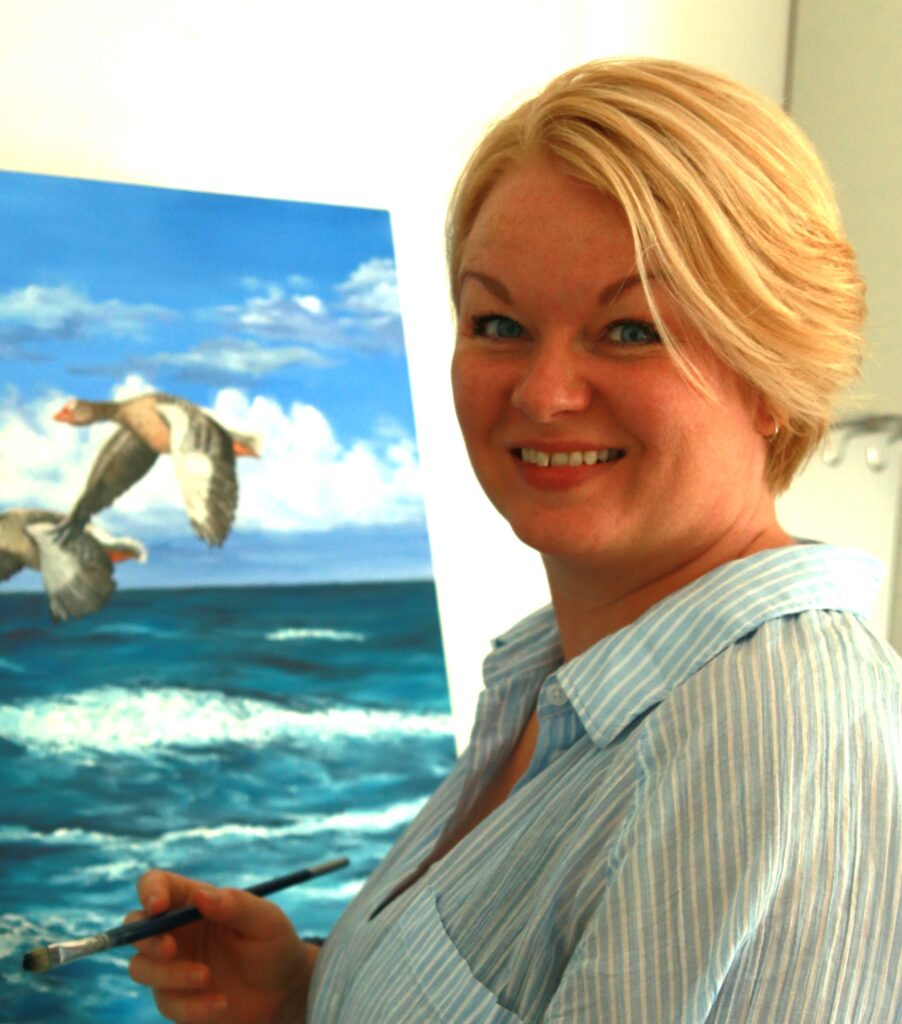
In my last blog post I wrote about the time when we just arrived in Bulgaria. This blog is about the very first impressions we had of the country.
We arrived in the month of January 2016 and that time of year is not forgiving at all in regards to how run down and worn Bulgaria is many places. In the spring and summer, everything blossoms and grows and draws the eye towards the beautiful nature, but in January and February everything is in its raw and brutal state. That didn’t worry us, though.
When we first arrived, our eyes and heart were set on adventure – not the pink and fluffy kind, but with all the exciting elements, tests and ordeal a good adventure entails. We saw the exotic, the foreign, the exciting, the wild, the comical and the good! We love the contrasts.
It was a fantastic and intense time. Many periods of one’s life just strolls by and disappear in everyday life and routines. It is really important to be lifted out of the famous comfort zone!!
The first half a year we rented a house in a town called Sredets. This is not where we live now. We chose Sredets very randomly as we had never set foot in Bulgaria before we packed up the car and drove there to live. I had gotten in touch with an English family who was willing to rent their house to us for half a year while we got the paperwork and all those praktical things settled. Here are some of my thoughts from a letter I wrote home:
___________________________________________
January 2016
“Let me take you on a little imaginary tour around our new town of Sredets with a few pictures.
The town, which is home to approx. 15,000 souls are based on bungalows. From all the chimneys rises smoke from various wood-burning stoves during these times. There is a large park with a market in the summer, a lot of nice playgrounds, a number of smaller merchants and other strange little shops where they sell toys, brooms and artificial flowers divided according to a logic that surpasses my understanding. In the city center there are a few really good restaurants with loud music and fancy decor. On the road to the right of where we live, there is an emergency room of an older date to say the least. With 20% of the windows smashed and looking like something out of a bad Russian Cold War movie. On the road to the left of our house, there is a brand new cultural center, which is large and beautiful and where it is said that there is an opportunity to, for example, participate in folk dance or paint graffiti – love the combination. Further down the road is what most of all looks like an abandoned prison, but apparently it is a well-functioning school.
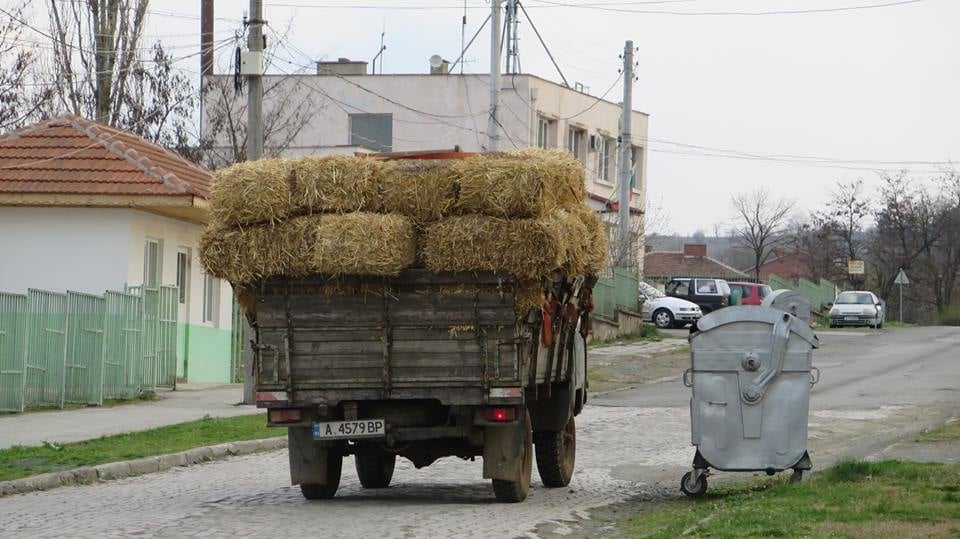

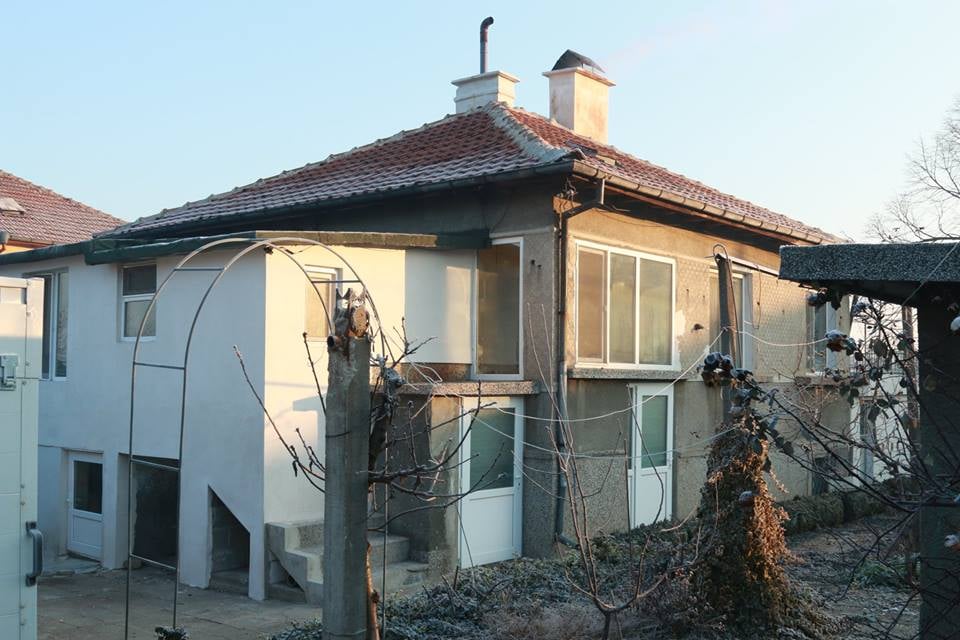
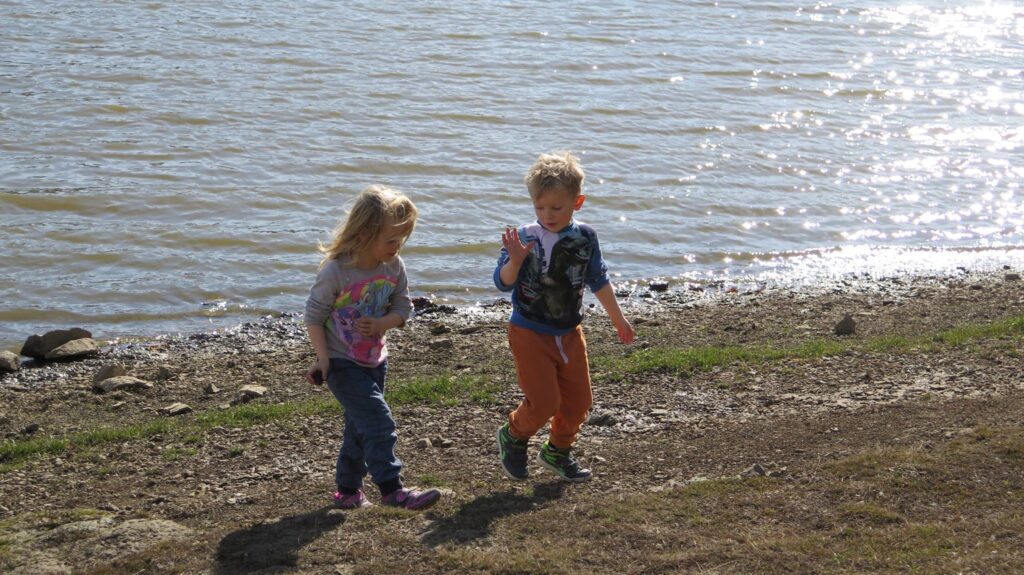

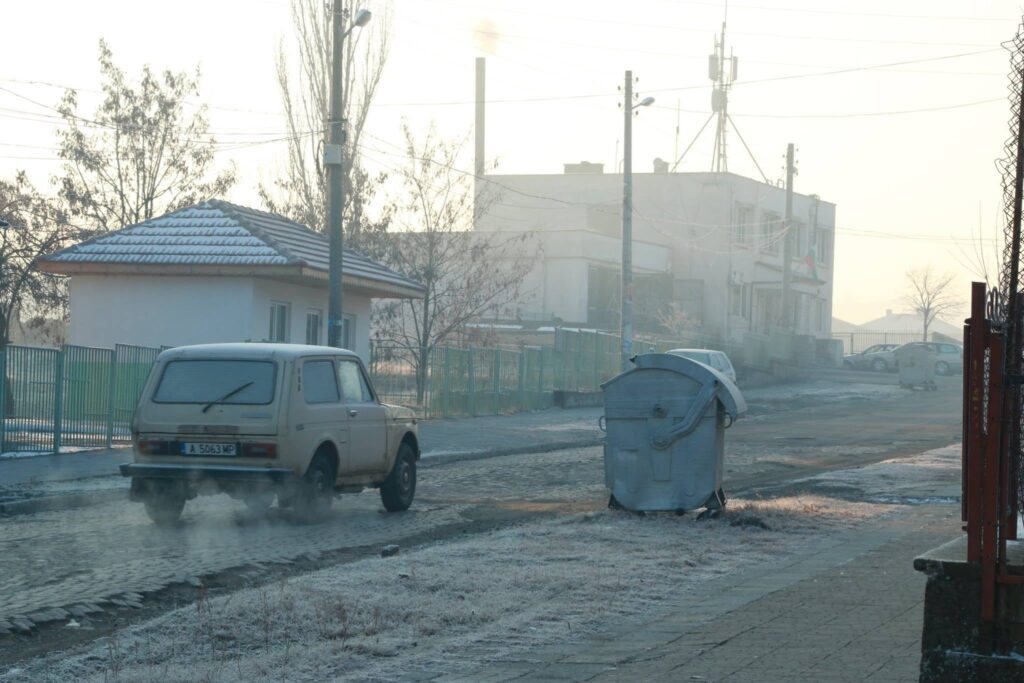
Outside our house, the cobblestones lie in a state of disarray. On the road there are just as many horse-drawn carriages and battered old cars. Frozen Bulgarians rush past on the pavement in bad overcoats and strange hats that look like something people would buy as dress-up clothes for a bad-taste party in Denmark. The temperature is below freezing, but the sun shines promisingly, so we can sit outside and eat home-baked buns with the Bulgarian sausage, which has passed Janus’s critical taste buds.
In the middle of the meal, our very sweet and lovable neighbor Dora comes in through the garden gate between our gardens, swinging a plate full of steaming hot food that she thinks we should taste. It’s certainly not the first time she’s stopped by with all kinds of sweets and cake, but this time it was a typical Bulgarian concoction, with white beans and ham in a very tasty thick sauce and topped with fresh parsley. Very delicious!!
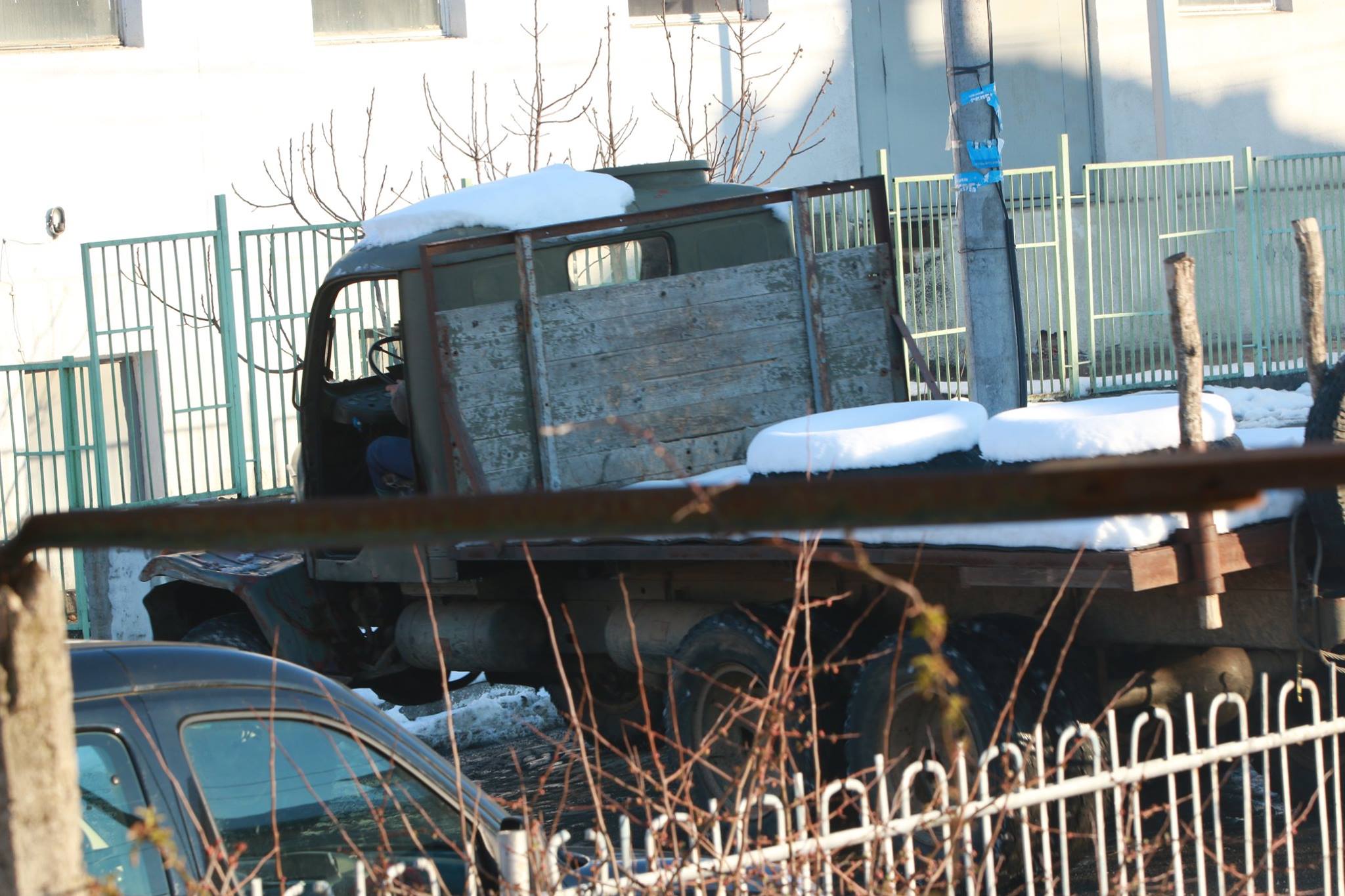
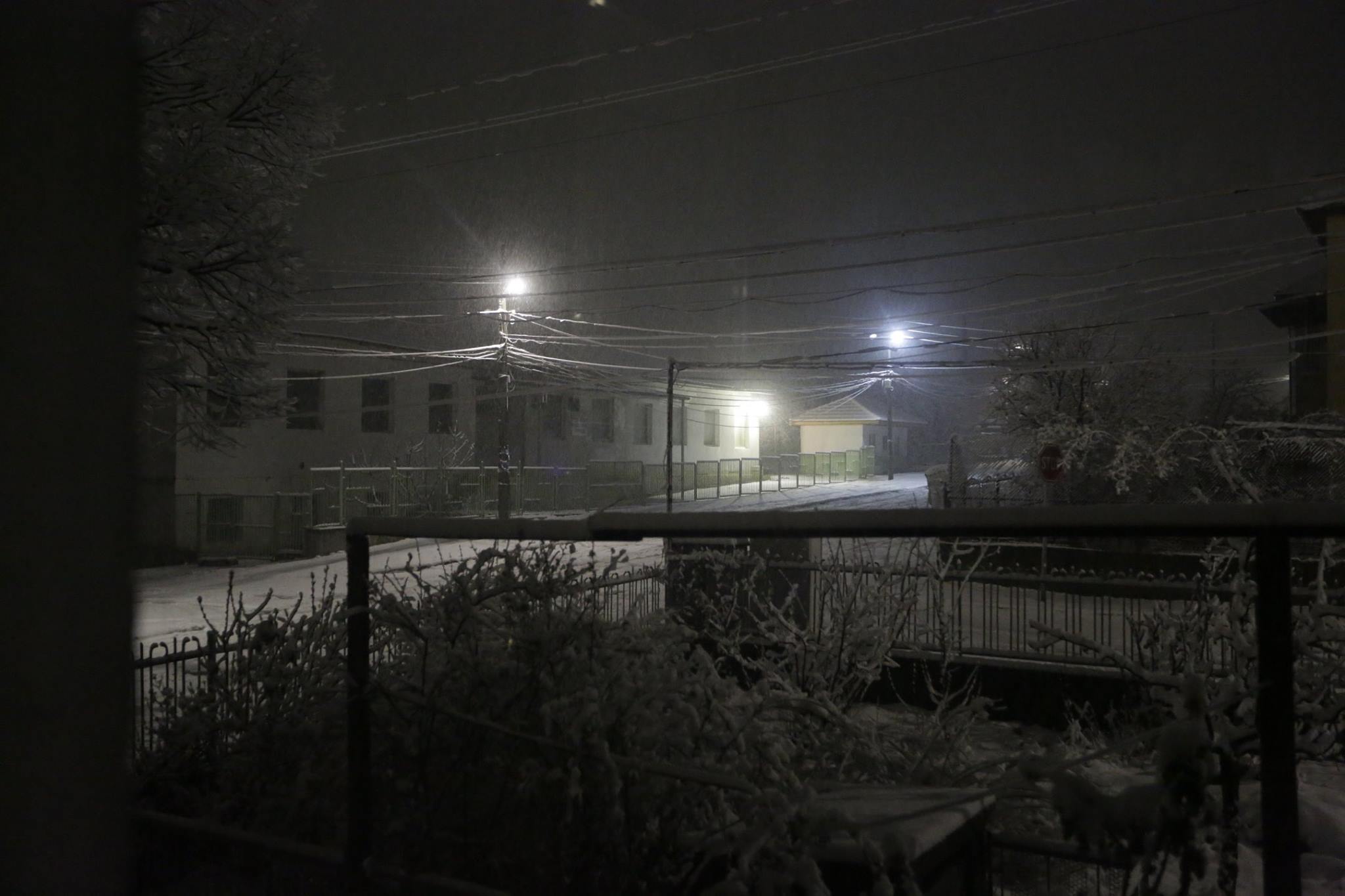


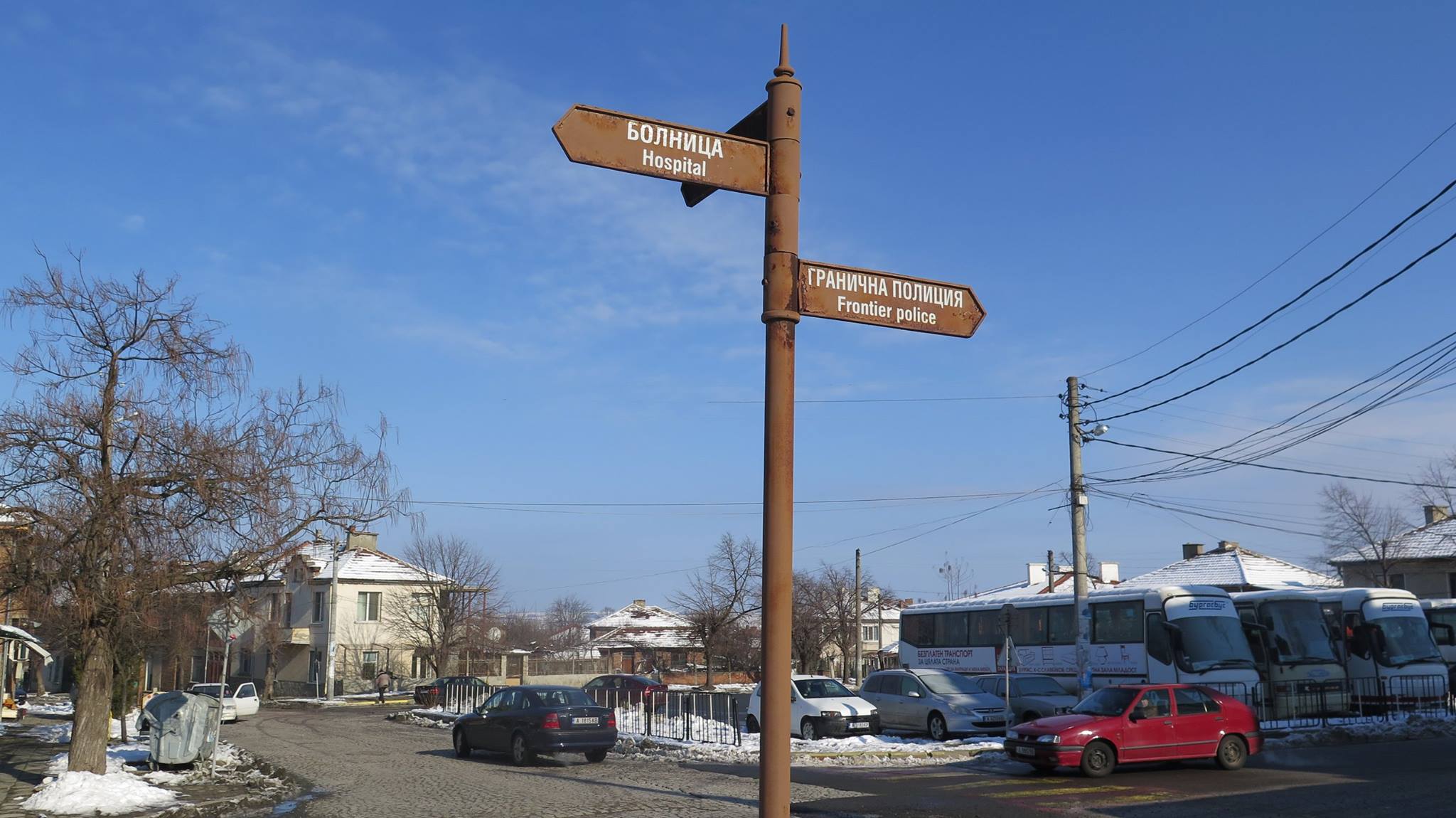
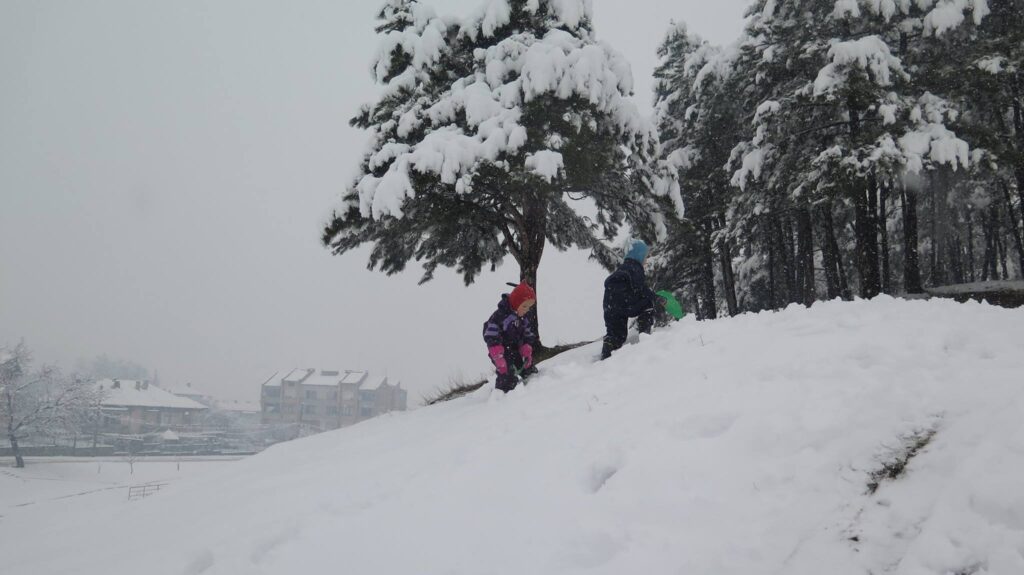
Dora is a beautiful woman in general. We can just come to her garden and play, use her clothesline if ours is not enough and send the children over for kisses, hugs and cake at her place. She is 65 years old and works in some kind of bank or loan company, she has shown me with gestures and signs. She has a son and a daughter in their early 40s and probably three grandchildren – the details are easily lost in the world of mimics. However, it’s amazing what you can talk about, even if you don’t have a common language. Dora only speaks Bulgarian and so far we can only say “hello, goodbye and thank you” in Bulgarian. However, we have agreed with Dora that we must sit down with google translate as soon as possible and have a proper chat.
While we are eating our food, one of the previously mentioned horse-drawn carriages passes by. It is the Romas who own them. They use them to get firewood in the forest right now. There are many Roma people in our city. Sredets is a former military town, we have been told. When it closed down, the Roma people used parts from the military buildings to build their own district on the outskirts of Sredets, up against a mountain ridge that is near our house. I admit frankly that I think it is difficult how we should relate to the Roma people. From home, the Romas have been a hotly debated topic, as my father in particular warned us against any contact with them as he have been on business trips to Bulgaria before. That’s why it’s been something I’ve been a little anxious about.
Dear Dora has also told that we should not talk to them, because they steal, she says. I’ve told the kids what Dora said and that we should keep our distance for now until we get a little wiser. But I think it is problematic to warn one’s children against an entire population group and I am very ambivalent about the question!
Roma people share a fate with quite a few other peoples around the world, in their own way – of course. They are considered a lower class and do all the hard and dirty work. So if a Bulgarian, for example, needs to have dug the garden, cleaned or chopped wood, then a message is sent for the Roma. They go around the bins throughout the city and pick up all the plastic, cardboard, metal and other recyclable material and make sure it gets recycled – another form of waste sorting you might say, but it seems to work. However, Simon and I quickly agreed that we will also sort our own garbage inside our house and then put the bags of plastic, metal etc. into the bin as we are used to from home then it must make life a little bit easier for the hard-working garbage collectors.”
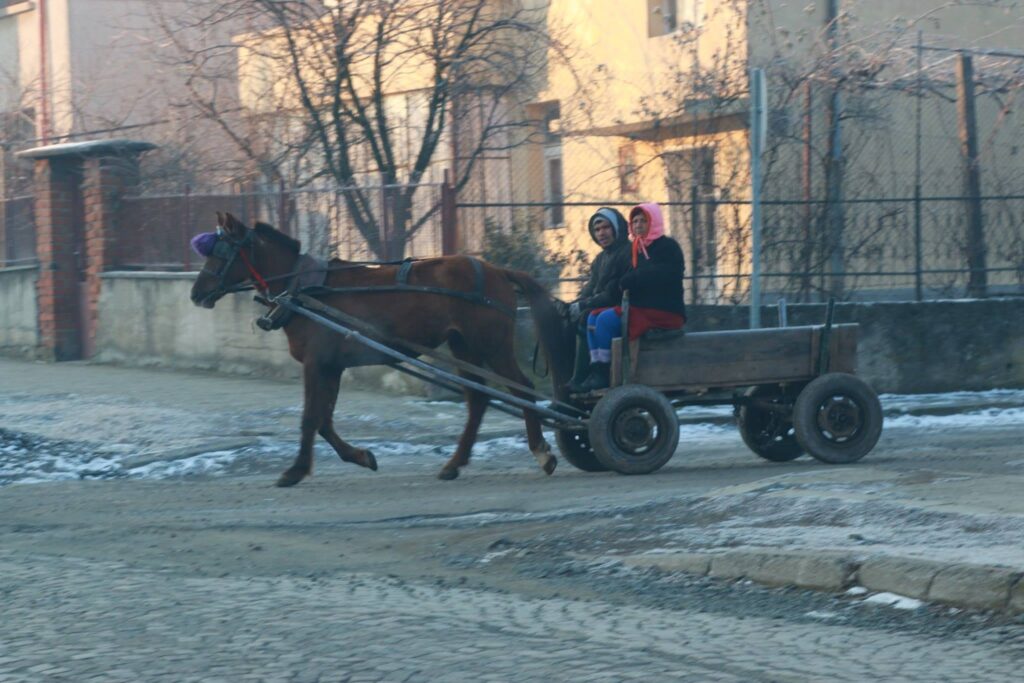
———————————————————————
Back to present time
The Roma lifestyle is still a mystery for us. Bulgarian society and the Roma people continue to face the same problems. Unfortunately! It seems stuck and incredibly complex. In any case, I don’t have a recipe for how they can break the extreme poverty, cultural clashes and racism. Everyone lives side by side, divided into separate parts of the villages, but without further contact. We treat everyone politely and respectfully no matter what but we generally keep to ourselves and a few good friends as there are too many things we don´t understand. We help where we can and give away anything (such as clothes, shoes, furniture, toys and old iron) that we don’t need anymore. There is always someone who are very happy to collect. But we have learned the hard way never to give anything to beggars.
Some of our family and friends in Denmark were of course skeptical about our choice and that we also wanted to take our 4-year-old children to Bulgaria. It was a strange and very different decision. There were a lot of unknown factors that none of us knew anything about. For us, that was the whole point, but I can easily understand that our parents had their reservations and warnings. It is their job as parents after all. At the same time, everyone thought that we were very brave and that it was cool that we actually went ahead and left and didn’t just go year after year talking about it. We lived the dream! The best thing about this dream was above all that we could now spend all our time together as a family. The first year in Bulgaria we just wanted to travel, explore and find out if this was a place for us – here in The Wild East!
You can read the all of my Blog posts on my website annelyhne.com
